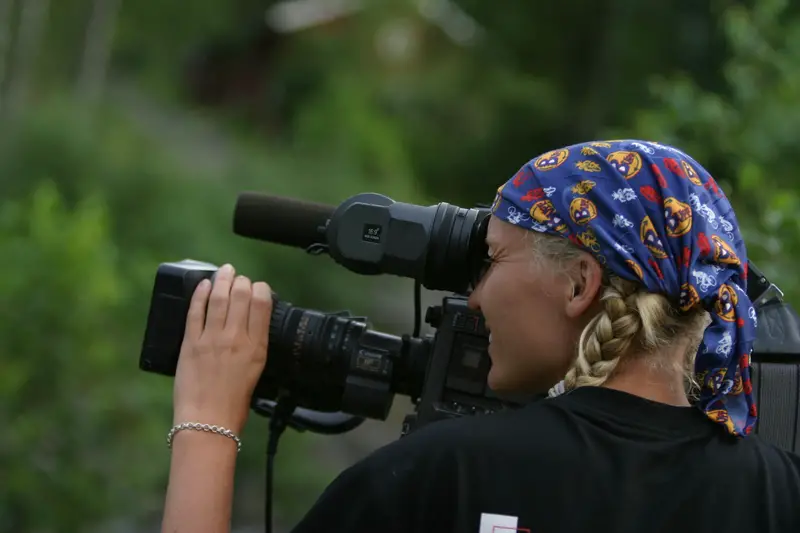What is a DP in Acting?

In the world of film and television, the term DP refers to the Director of Photography, a key role on any set that plays a vital part in the visual storytelling of a project. While the DP’s primary responsibilities revolve around the technical and artistic aspects of cinematography, their work closely impacts the performances of actors and the overall mood of a scene. In this article, we’ll explore what a DP does, how they collaborate with actors, and why their role is so essential in bringing a script to life.
1. What is a Director of Photography (DP)?
A Director of Photography (DP), also known as a Cinematographer, is the person in charge of overseeing the visual aspects of a film, television show, or other media projects. Their role is to ensure that the camera, lighting, color schemes, and shot composition align with the director’s vision while maintaining the mood and tone of the story. The DP is responsible for how the audience sees the story on screen—literally shaping the way everything looks. While the DP is not directly involved in directing the actors’ performances, their decisions about lighting, framing, and camera movement have a huge impact on how those performances are captured on camera and perceived by the audience.
2. How Does the DP Work with Actors?
The Director of Photography collaborates closely with the director, and often the actors, to create the look of each scene. While the DP’s focus is on the visual, they do contribute to the environment in which the actors perform.
Lighting
Lighting is one of the DP’s most powerful tools. The way a scene is lit can influence the mood, tone, and even the performances of actors. For example, dramatic lighting with harsh shadows can make a scene feel tense or mysterious, while softer lighting can evoke warmth or intimacy. A DP will often work with the actors to ensure that the lighting enhances their performance and draws attention to specific emotions or actions in the scene. For instance, in close-up shots, a DP might use a softer light to highlight an actor’s facial expressions, creating a more intimate or emotional moment. In action scenes, a DP might use dynamic lighting to capture the energy and movement, making the actors’ performances feel more intense.
Camera Angles and Movement
The DP also determines the camera angles and movement that will best highlight the actors’ performances. The placement of the camera can influence how a character is perceived by the audience. For instance, an actor who is filmed from a low angle might appear more powerful, while a high-angle shot might make them seem vulnerable. The DP may also collaborate with actors to plan specific blocking or movements, especially in complex or action-heavy scenes. For example, in an intense chase sequence, the DP’s decision on where to place the camera and how to move it will ensure that the actor’s physical performance is shown to maximum effect, creating a dynamic and engaging visual experience.
Creating a Space for the Actor
The DP’s ability to create a visually compelling environment also plays a role in how comfortable and confident actors feel in their performances. The lighting, set design, and framing of the shot can influence how an actor perceives the scene. If an actor feels that the visuals enhance their performance, it can lead to a more authentic and natural portrayal of their character.
3. The Collaborative Process: DP and Director
While the DP works with the actors to ensure their performances are captured in the best light, their main collaboration happens with the director. The DP and director must share the same vision for the story’s visual language.
Translating Vision into Visuals
The director has a vision for how the film or show should feel, and it’s the DP’s job to translate that vision into visuals. The director might tell the DP they want a scene to feel tense, romantic, or comical, and the DP then decides how to achieve that visually—through camera angles, lighting, and color palettes. For example, if a director wants a romantic scene to feel intimate, the DP might use soft lighting and close-up shots to create a sense of closeness. On the other hand, if the director wants a scene to feel cold and isolating, the DP may use harsh, overhead lighting or wide shots to create a sense of distance between the character and their environment.
4. The DP’s Impact on the Actor’s Performance
While the DP is not responsible for directing an actor’s performance, their work undeniably affects it. The actor’s role is to bring the character to life through emotions, dialogue, and physicality, but the way the scene is shot can either elevate or hinder the effectiveness of that performance. For example:
- Close-ups: When a DP chooses to use a close-up shot, the actor’s facial expressions become the focal point, allowing the viewer to connect deeply with the character’s emotions. In such cases, an actor must give a performance that is nuanced and subtle enough to be captured in such a tight frame.
- Wide shots: These shots allow the actor to physically interact with the space and other characters, and it is the DP’s job to frame those interactions in a way that enhances the story. A wide shot might give the actor more room to move, allowing them to physically embody the scene.
The DP’s decisions help create a visual harmony between the actor’s performance and the story’s mood, making the overall experience more immersive and impactful.
5. The DP’s Role in Different Genres
The role of the DP can differ depending on the genre of the project. In action films, the DP may need to focus on dynamic camera work and capturing high-energy sequences, while in dramas, the emphasis may be on intimate, character-driven shots that highlight emotion. In animated films, the DP works with the director and animation team to ensure that the visual style of the animation complements the voice acting and character design. The DP’s ability to create mood with lighting and camera angles is just as crucial in animated films as it is in live-action projects.
6. Conclusion: A Vital Role in the Creative Process
The Director of Photography plays a crucial role in the success of a film or television project. While they are not responsible for directing actors’ performances, their work significantly influences how those performances are captured and presented to the audience. Through their decisions regarding lighting, camera placement, and shot composition, the DP helps create a visual language that enhances the story, supports the director’s vision, and elevates the performances of the actors. As actors, understanding the role of the DP can help you appreciate the intricacies of the collaborative process that brings a film or show to life. The next time you’re on set, remember that the visual storytelling the DP provides may be just as important as the performance you’re delivering. Together, the director, DP, and actors work in harmony to create a compelling, immersive experience for the audience.




